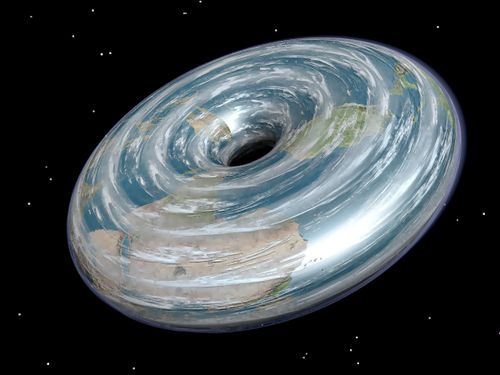uuu
Donor
- MBTI
- I
I recently had an experience where someone posted on social media, essentially, "What the fuck is up with people who believe X? Do they really think that ABC?" And I responded saying, "Although I don't believe X, I think their reasoning is more about DEF than ABC." Then this person accused me of defending group X and blocked me.
This was a very disheartening experience, and after mulling it over for a few days, I realized that my predominant feeling is one of shame. In the mind of the person who blocked me, it is sinful for me to even know about X-believers, even though I am not one, and this person regards me with suspicion merely because I am capable of describing the logic behind their beliefs. I feel ashamed, but I do not think the shame is justified: rather, I was shamed for having what I think is a healthy, even necessary level of intellectual curiosity.
-----
I have noticed that many people try to "sanitize" their media diet, to some extent or another. A common statement is, "It is exhausting to constantly be reminded about X, and I don't want to poison my brain with those ideas." To me this is a very insecure statement: I believe the things that I believe because they are correct, and I am not going to be seduced into believing in some offensive and horrible ideology just because someone charismatic or beautiful posts about it on social media.
I know arguing in circles about an issue you have already made up your mind about is exhausting, and I forgive people who want to carve out a space where their ideas can go unchallenged. But I think it is dangerous to spend too much time in this sort of bubble. If I am going to hold a strong position on a political issue, then I think I have an ethical obligation to engage on a regular basis with arguments from the opposite side. There are several reasons for this:
Do you have any limits on the kind of media that you consume? How do you strike a balance between engaging with a diverse spectrum of viewpoints and not getting burned out by pointless debate? How do you decide which ideas are "so offensive that I refuse to even consider them" and which ideas are "wrong but I am willing to hear them out"?
This was a very disheartening experience, and after mulling it over for a few days, I realized that my predominant feeling is one of shame. In the mind of the person who blocked me, it is sinful for me to even know about X-believers, even though I am not one, and this person regards me with suspicion merely because I am capable of describing the logic behind their beliefs. I feel ashamed, but I do not think the shame is justified: rather, I was shamed for having what I think is a healthy, even necessary level of intellectual curiosity.
-----
I have noticed that many people try to "sanitize" their media diet, to some extent or another. A common statement is, "It is exhausting to constantly be reminded about X, and I don't want to poison my brain with those ideas." To me this is a very insecure statement: I believe the things that I believe because they are correct, and I am not going to be seduced into believing in some offensive and horrible ideology just because someone charismatic or beautiful posts about it on social media.
I know arguing in circles about an issue you have already made up your mind about is exhausting, and I forgive people who want to carve out a space where their ideas can go unchallenged. But I think it is dangerous to spend too much time in this sort of bubble. If I am going to hold a strong position on a political issue, then I think I have an ethical obligation to engage on a regular basis with arguments from the opposite side. There are several reasons for this:
- It reminds me of why I disagree with these ideas and favor my own view
- It ensures that I hold my own view because it is correct, not because it is popular among people in my bubble
- It gives me the opportunity to win people over to my view
Do you have any limits on the kind of media that you consume? How do you strike a balance between engaging with a diverse spectrum of viewpoints and not getting burned out by pointless debate? How do you decide which ideas are "so offensive that I refuse to even consider them" and which ideas are "wrong but I am willing to hear them out"?
Last edited:





